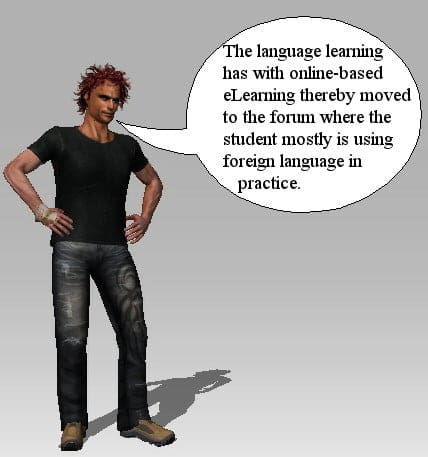Language and culture is closely related. In the globalised culture of the web especially younger people is using universal chat and sms-codes to communicate. The effects of this linguistic boom and the speed in the development of communication lead to changes in the English language.
Globespeak and language gap
Learning by doing is one of the most effective methods for learning, but at the same time the shortened cyber-language often does not work outside the chat-room. The big issue with this background is if language-teachers in general are able to decode and use these cyber-codes to a more formal and universal context so it could be used in teaching?
An additional problem is that students with another mother tongue than English has a strong tendency to combine languages. The Swedish ”svengelska” has its counterpart in ”spanglish” (Spanish-English), ”franglais” (French-English) and “denglish” (German/deutsch-English). These hybrids are another example of changes in the English language. The result is a so called globespeak, which fast development is risking to result in that youngsters not will be able to make themselves understood in more formal occasions. In this way English fulfil the requirements of global presence in order to be termed the lingua franca of this age, but the quality of the use is lagging behind.
Over-bridging language barriers
But how can this language-gap between teacher-student and between quantity-quality be over bridged? Sylvia van de Bunt-Kokhuis and Henrik Hansson suggest combining language learning and ICT with the pedagogical method of learning by doing, in other words eLearning. Interactive exercise-modules with unlimited access 24/7 and feedback from the module in the moment the student is doing the exercise. The prospects to communication between teacher and student also increase outside the classroom.
The language learning is thereby moved to the forum where the student mostly is using foreign language (mainly English) in practice. The exercise-modules here work as a bridge to qualitative training that is required for improve the English skills in general beyond the cyber-culture. In addition this is an excellent opportunity to increase the interest for other languages as well. Language education develops from a theoretical teaching method to training in practice.
Written by LarsGöran Boström©
Sources:
Forskningsrapporten: ”E-learning and language change – Observations, tendencies and reflections”
”Engelskan knockar övriga språk” av Viveca Brozin-Bohman i Lärarnas Tidning nr2/2005
Opens in a new tab




